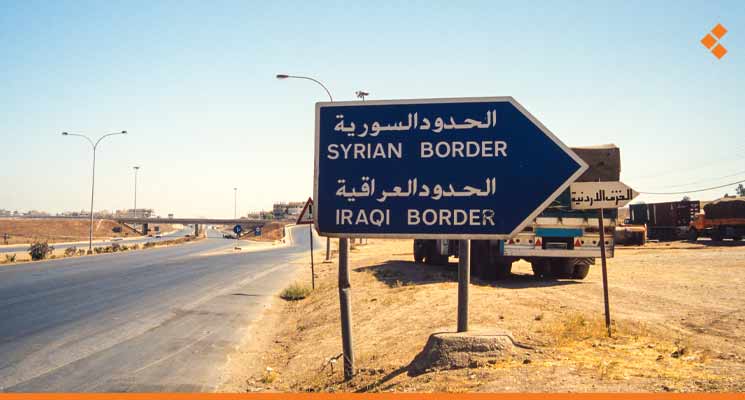Two weeks have elapsed since the departure of Ghassan Abbas, the Syrian ambassador to the UAE, without any announcement of a successor. This development raises questions about the state of relations between the two nations.
On December 26, 2023, the Syrian Embassy in Abu Dhabi hosted a farewell event for Ambassador Abbas, attended by members of the Syrian community. The pro-government newspaper Al-Watan reported on this occasion, noting the absence of any Emirati official representation at the event and the lack of a new ambassadorial appointment from Damascus as of the time of this report.
Despite the UAE’s previously strong ties with the Syrian regime – exemplified by Bashar al-Assad’s visit in March 2022, his first to an Arab nation since 2011 – the UAE was notably absent from Assad’s New Year’s greetings list. The visit, as reported by the Emirates News Agency (WAM), involved discussions on issues like Syrian territorial integrity, foreign forces withdrawal, and political and humanitarian support for Syria.
Two interpretations
Dr. Ahmed Al-Qirbi of the Syrian Dialogue Center suggests two possible interpretations of these developments. The first is that the non-reappointment of Ambassador Abbas could be routine administrative procedure, while the second points to potential Emirati pressure on the Syrian regime, particularly given the lack of public interactions or New Year’s greetings between the two countries.
Jordan Toughens Tone Against Assad Regime: “Smugglers Being Trained”
Al-Qirbi highlighted the growing emphasis on the issue of drug trafficking, particularly the trade in Captagon, as a possible area of Emirati concern. He noted Jordan’s role as a transit point in this smuggling network to the Gulf states and its hosting of 1.6 million Syrian refugees since the 2011 Syrian uprising. He posited that the UAE’s strategic stance on normalization with the Syrian regime, including efforts to reintegrate Syria into the Arab League and lobby for the easing of U.S. sanctions, indicates a broader strategy to conclude the Arab Spring narrative.
This strategy includes attempts to resolve the Syrian situation through normalization and global reintegration. This is evident in the UAE hosting the 28th World Climate Action Summit, where human rights organizations called for the withdrawal of an invitation to Bashar al-Assad and his arrest based on French criminal investigation warrants for the use of banned chemical weapons. The Syrian delegation at the summit was led by Hussein Arnous, head of the Syrian government, without official explanation for Assad’s absence despite his invitation from the UAE.
Dr. Al-Qirbi, speaking to Enab Baladi, emphasized that the UAE’s exertion of pressure on the Syrian regime should be seen not as a deviation from the path of normalization, but rather as an attempt to encourage positive action from the regime, particularly concerning the halt of Captagon smuggling into Arab countries.
He noted that it’s unlikely the Arab countries would expect the Syrian regime to limit the influence of Iranian militias, acknowledging the regime’s limitations in this regard.
The UAE has been at the forefront of advocating for the Syrian regime’s reintegration into the Arab League. Since 2018, the UAE has proactively revived relations with the regime, reopening its embassy in Damascus and supporting various projects in regime-controlled areas. These include crucial water system initiatives and the establishment of a photovoltaic power station.
A landmark visit by UAE Foreign Minister Abdullah bin Zayed to Damascus on October 9, 2021, marked the first of its kind since the Syrian revolution began in 2011. Bin Zayed’s visit signified a bold move towards the Syrian regime, following his earlier statements in March 2021 alongside Russian Foreign Minister Sergei Lavrov, asserting the inevitability of Syria’s regional reintegration.
Bin Zayed also highlighted the intention to discuss the U.S.-imposed Caesar Act with Washington, viewing it as a significant obstacle to collaboration with Syria.
The UAE’s involvement in Syria’s post-earthquake relief efforts in February 2023, particularly in Latakia Governorate, further demonstrates the strengthening ties between the two nations.
In March 2023, Syrian President Bashar al-Assad and his wife Asma Al-Assad made a significant visit to the UAE. Marking Asma’s first visit since 2011, they were received by Fatima bint Mubarak, the wife of the late Emirati President Zayed bin Sultan. The presence of Fatima bint Mubarak lent a notable distinction to this diplomatic event. The Syrian Presidency’s Facebook page detailed discussions on bilateral relations, regional developments, and economic cooperation.
Despite the Abu Dhabi government’s previous support for Syrian armed opposition factions and its involvement in the Jordan-based “MOC” command center, it has increasingly favored closer ties with the regime. This was exemplified by a phone call in March 2020 between Mohammed bin Zayed, Crown Prince of Abu Dhabi, and Assad to discuss the COVID-19 pandemic, signifying a gesture of human solidarity.
The reopening of the UAE embassy in Damascus on December 27, 2018, after its closure in 2012, further underscored Abu Dhabi’s intent to restore relations. The UAE Foreign Ministry justified this decision as a commitment to bolstering Arab influence in supporting Syrian sovereignty and territorial integrity.
Meanwhile, the Syrian regime has been actively appointing ambassadors to various Arab countries, with the latest significant appointment being Deputy Foreign Minister Ayman Soussan as ambassador to Saudi Arabia. This move reflects the regime’s ongoing efforts to restore and strengthen its diplomatic ties within the Arab world.
This article was translated and edited by The Syrian Observer. The Syrian Observer has not verified the content of this story. Responsibility for the information and views set out in this article lies entirely with the author.


